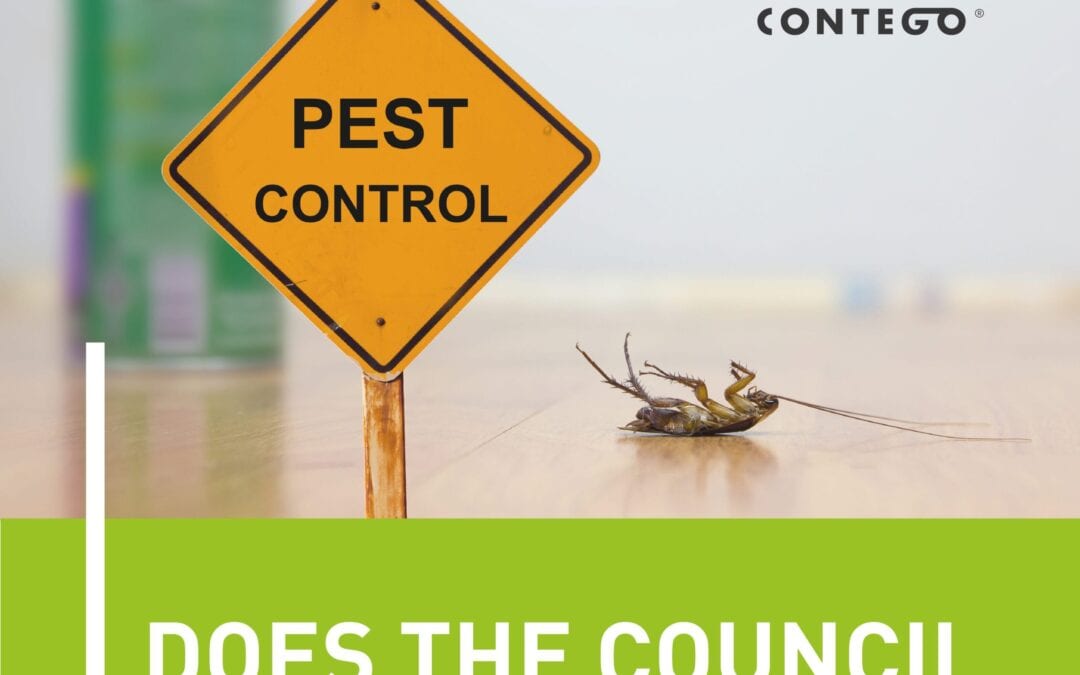Whether it’s rodents, bed bugs, or cockroaches, the last thing you want is to have pests in your home, causing damage and putting your family’s health at risk.
You need the problem dealt with fast, but do you really have to pay for pest control out of your own pocket? If you rent your home, does the council do pest control?
Read on to find out.
What should you do if you have pests in your home?
You can:
- Hire a pest control company.
- Deal with the problem yourself: though while this is cheaper, DIY pest control is only suitable for minor pest problems and it might not work. Dealing with some types of pests requires professional knowledge and products that aren’t available to the public.
- Contact your local council to find out if they provide pest control services: If they do, they might charge a fee and may only provide the service if they consider that the problem is serious enough that it could cause health and safety issues for other residents. Councils have no legal obligation to offer pest control services, but they might be able to give you advice or serve your landlord an enforcement notice if you are a private or housing association tenant.
So who is responsible for pest control in my property?
As you might have guessed, responsibility for pest control in rented homes is a bit of a grey area. It usually comes down to finding out how pests got in (which can be hard to determine) and what it says in your tenancy agreement.
Your landlord’s responsibilities
Whether your landlord is a private landlord or you rent from a Housing Association, they are required by law, as far as is practical, to pest proof properties and make sure they are in a good enough condition to live in. Under the Prevention of Damage by Pests Act 1949, landlords can be served with a notice that they need to get rid of a pest infestation if it is causing a health and safety issue for their tenants or neighbours. Your landlord is liable for pest control if their failure to carry out repairs has resulted in pests getting into your home, for example.
If landlords refuse or fail to arrange pest control, your local council will arrange it, then they can legally recover the costs from your landlord.
Your responsibilities as a tenant
There are some cases where a tenant would become completely liable for pest control. This includes:
- If you don’t notify your landlord about a pest problem soon enough.
- You allow the condition of your property to deteriorate or fail to keep it clean so that it attracts pests-for example, failing to empty your waste bin or allowing clutter to build up in your property.
Check your tenancy agreement
Our advice would be to check what it says in your tenancy agreement before you contact your landlord. If the agreement states who is responsible for pest control and in what circumstances, the situation should be easier to sort out.
Generally, the landlord has to keep a property in a condition that’s safe and comfortable enough to live in and as a tenant, you have to keep your property clean, so if the landlord has failed to carry out a repair and your have allowed rubbish to build up in your home, it’s clear that you both have to mutually agree what will happen when it comes to pest control (for example, hiring a professional pest control company and splitting the cost).
Reporting a pest problem to your landlord
Whatever the lease agreement says or doesn’t say, you must report a pest problem to your landlord as soon as you notice it. It’s a good idea to take photos or videos as well if you can.
If your landlord refuses to deal with the problem, you can contact your local council who will usually send an environmental health officer out to inspect the property and make a judgement on who is responsible for pest control.
Need help with pest control in your rented property?
If your local council doesn’t provide pest control services, you and your landlord have agreed to share the cost of professional pest control, or it has been determined that you are responsible for pest control in your home, we can eradicate pests from your home fast and effectively.
Don’t waste time with DIY methods that might not work and don’t ignore the problem hoping it will go away, get peace of mind that your property is safe, clean, and healthy for you and your family to live in.
Need help now?


Recent Comments